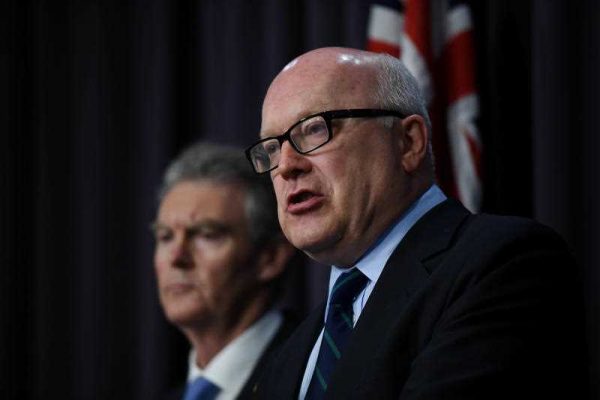The Australian government, led by Prime Minister Tony Abbott, has embarked on the biggest expansion of Australia’s anti-terror laws since the 2005 London bombings. In doing so, it is building upon the extraordinary number of anti-terrorism laws already enacted in Australia.
Prior to this latest round of law-making, the Australian Parliament had enacted 61 anti-terrorism laws. Australia’s output of anti-terrorism laws exceeds that of nations facing a higher threat level. In an analysis spanning a number of democratic nations, Professor Kent Roach of the University of Toronto has described Australia’s response as being one of ‘hyper-legislation’.
Australia’s anti-terrorism laws are striking not just in their volume, but, more significantly, in their reach. In particular, the laws include three regimes not currently found in any comparable country, such as the United States, the United Kingdom or Canada.
The first regime enables the Australian Security Intelligence Organisation (ASIO) to question and detain any person, including Australian citizens not suspected of terrorism. They can be held in secret for a week and jailed if they refuse to answer any question put to them by ASIO. Journalists can also be jailed if they report on the operation of the regime. No other democratic nation permits its domestic spy agency to carry out this kind of action.
The second is preventative detention orders, which permit a person to be held without arrest or charge in secret detention for up to 14 days. The person cannot tell anyone they are being detained, or for how long. They can only contact their employer and one family member to say they are ‘safe, but not able to be contacted for the time being’. It has never been clear where Australia got the idea for this regime. Again, not even nations facing a long-term, higher threat of terrorism, such as the United States, have enacted such a law.
Under the third regime, control orders can be sought by the government to regulate almost every aspect of a person’s life, ranging from where they work or live to the people to whom they can talk. A person can even be subject to house arrest. All this can occur without a trial. Australia copied this scheme from the United Kingdom. But the United Kingdom’s scheme has since been repealed in favour of a less intrusive regime, leaving Australia alone in maintaining such a law.
These three regimes were enacted at the height of the ‘war on terror’ and are due to expire in 12 to 18 months. None has proven to be effective or necessary and all have been recommended for repeal by independent inquiries and reports.
Instead the Abbott government has announced that, as a response to the problem posed by foreign fighters, each of these regimes will be extended for a further 10 years.
In addition, new legislation will introduce a range of new measures. One Bill already passed by Parliament allows greater surveillance of computer networks, grants immunity from prosecution to intelligence officers engaged in special operations and exposes journalists to jail for up to 10 years for publishing even general information about such special operations.
A second Bill now in Parliament covers a wide range of matters, including the retention of biosecurity data from people entering or leaving Australia. It also introduces new criminal penalties for advocating terrorism and would allow Australians to be jailed for up to 10 years for entering any area declared by the government to be a no-go zone on the basis that a listed terrorist organisation is engaging in hostile activity there. A person could escape conviction only by proving that they went to the area solely for a reason identified by the government as being legitimate.
A third bill is also proposed. It will require telecommunications companies to retain metadata information on calls and internet use.
Law-making about terrorism is far from over. In Australia’s case, the fact that it is the only democratic nation in the world without some form of national Bill of Rights is telling. The absence of this check means that there are very few limits to the laws that Australia might pass in response to the threat of terrorism.
George Williams is the Anthony Mason Professor of Law at the University of New South Wales.


Dear George Williams,
Thank you for your excellent article on the recent anti-terrorism legislation.
If I were a billionaire, I would give a copy of your article to every Australian, and urge them to think about the implications. This is hugely important, and your low-key style of presentation makes your analysis even more effective.
I hope that you will publish the article in as many places as possible. We need a public debate.
Pete